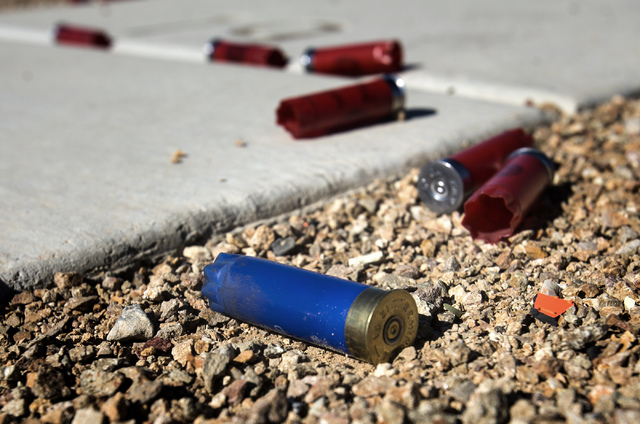Weigh all of the facts before deciding how to vote on Question 1

Election Day is Tuesday, which means we have important decisions to make. Decisions that could very well determine the long-term direction of life in Nevada.
One of the choices Nevadans are being asked to make could have lasting yet currently understated legal impacts on hunters or other firearms owners and their associates.
When it comes to choosing people to serve in office, one never knows how the candidates will perform once they take office. We go out on a limb in many ways and vote based upon what the candidates say, what we read in campaign mailers, or the opinions of friends and family members. Some politicians live up to their pre-election billing, and others prove to be a completely different caliber of person than their marketing gurus make them out to be.
The one consolation is we always have the option to vote elected officials out of office. Unfortunately, it sometimes seems as if we lack the courage and willingness to do so.
In a similar way, when we vote to create a new regulation, there is always the chance we may do so based upon what proponents of the regulation say it will do for us rather than delving into the actual regulatory language and gaining a full understanding of what it could do to us. To do so takes us out on that proverbial limb once again. For with a seemingly simple regulation change, what is legal today and has been for generations, could land you in jail tomorrow.
Another problem with regulations is that voting them out is more difficult than voting them in. Therefore, it pays to use prudence when considering their passage.
Let us consider Question 1 on the ballot. Known as “The Background Check Initiative,” this regulation would change the language in NRS 202 to make it illegal for the average person — one who is not a licensed firearms dealer, importer or manufacturer — to sell or transfer a firearm to another average person without first having a background check completed on the purchaser or transferee before the sale or transfer is completed.
While the regulation provides for a handful of exemptions, such as the transfer of firearms between immediate family members, it could close the door on something as simple as loaning your bolt-action .22 to your neighbor who planned on teaching rifle shooting at a summer youth camp. Doing something so heinous could result in your being charged with a gross misdemeanor. Do it a second time and welcome to the world of convicted felons.
The loan or transfer of your hunting rifle to a friend or co-worker also would be restricted by the regulation change. This would be possible without a background check, but only if the transfer occurs in the area where your friend holds a valid license or tag. In other words, he can borrow your rifle, but you better have some extra vacation time set aside. The new regulation would require you to transport the firearm to the hunt area before placing it in your friend’s control.
Then you will need to hang around until he is done so he can give it back, otherwise a background check is required. As I read the proposed regulation, the background check would be required at both ends of that transaction.
To obtain that background check, the gun owner would have to take the firearm, along with the person to whom he plans on selling or transferring the firearm, to a licensed firearms dealer. If that dealer has the time, or is so inclined, he may perform the background check through the National Instant Criminal Background Check System and charge you “a reasonable fee.” Or he may send you somewhere else.
What is a reasonable fee? The regulation doesn’t say, but given that a dealer would have to take time away from his own business of selling firearms, he would have to charge enough to recover revenue lost while handling a background check not associated with a sell merchandise to his own customers.
According to a study by the National Shooting Sports Foundation, dealers also are concerned with liability that might be attached with such background checks.
Proponents of Question 1 often refer to what gun control advocates call a “gun show loophole,” and promote the idea that one can walk into a gun show and purchase a gun from a dealer without a background check anytime. That, the NSSF says, is inaccurate.
“Licensed retailers must follow the same regulations and procedures, including conducting criminal background checks, when conducting business at gun shows just as they would if at their store or other place of business,” notes the NSSF. “If an individual is ‘engaged in the business’ of selling firearms, they must be licensed. … Under existing law, unlicensed dealers that fit this description and sell firearms at gun shows (or anywhere else) are breaking the law.”
Public safety is a primary concern for each one of us, but perhaps we should focus on preventing or penalizing criminal behavior under existing statutes rather than creating ways to turn the average law-abiding individual into a law breaker.
Freelance writer Doug Nielsen is a conservation educator for the Nevada Department of Wildlife. His “In the Outdoors” column, published Thursday in the Las Vegas Review-Journal, is not affiliated with or endorsed by the NDOW. Any opinions he states in his column are his own. He can be reached at intheoutdoorslv@gmail.com.